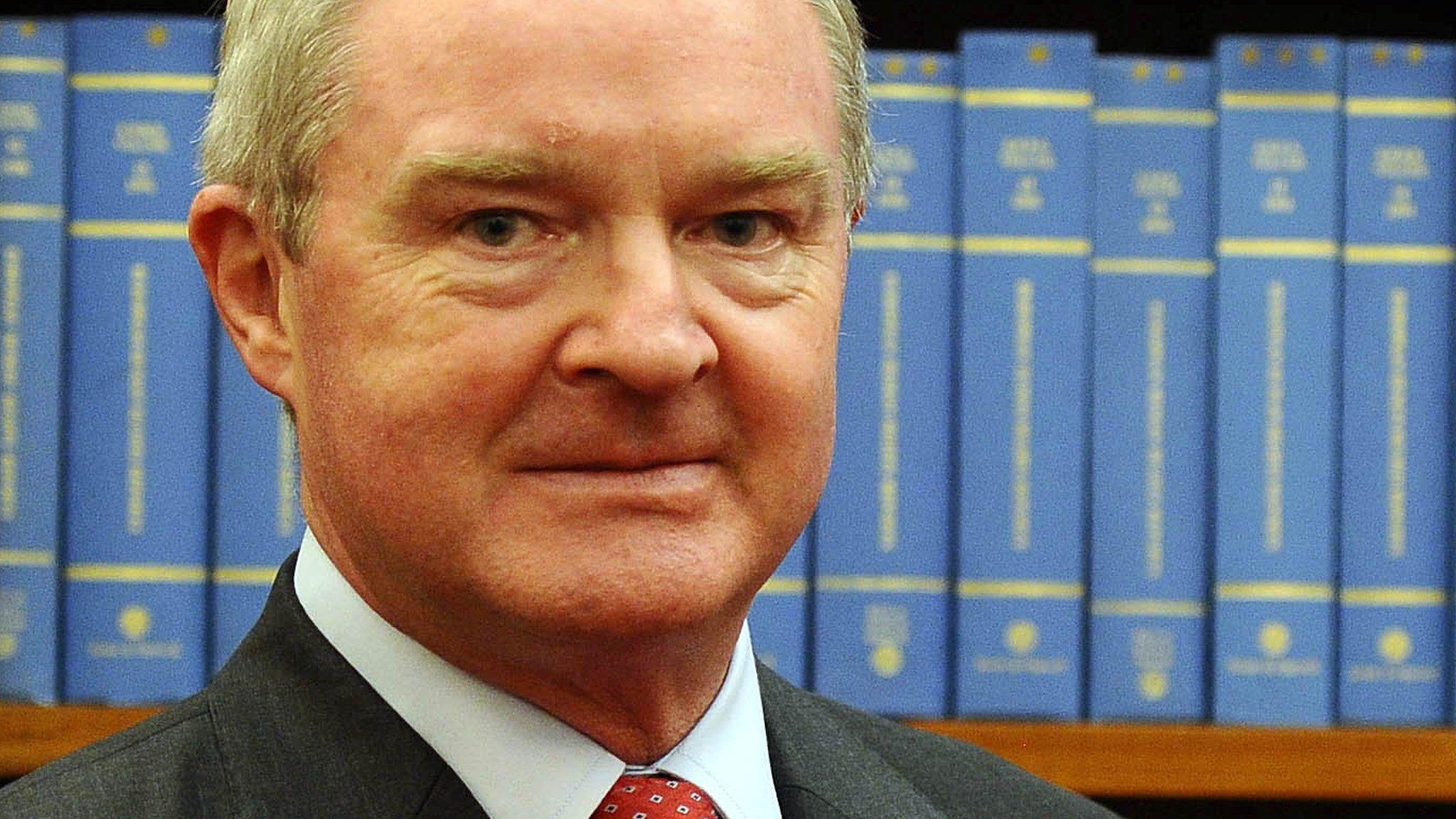The Troubles: PSNI accused of 'blocking progress' of killings inquests
- Published
The cases include a number of so-called shoot-to-kill incidents
Police in Northern Ireland have been accused of blocking progress on inquests into controversial killings during the Troubles.
A lawyer for the families of two unarmed republicans shot dead by the RUC in 1982 said they believed the PSNI is trying protect the RUC's reputation.
The claim was made on the first day of a two-week review into some of the most controversial killings of the Troubles.
The review is looking at 56 cases involving 97 deaths.
They include killings by police officers and soldiers, and others where there are allegations of state collusion.
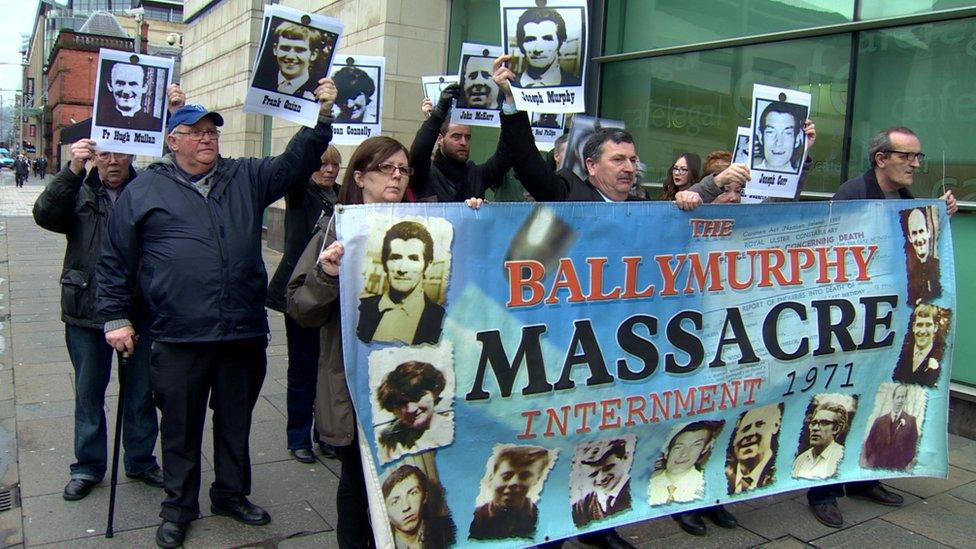
The court heard that so far the Army has traced only one soldier who was on duty at Ballymurphy
A senior judge, Lord Justice Weir, is assessing what more needs to be done before inquests can be held to establish what happened.
Resources
In his opening remarks, the judge said he hopes the review "will shed some light on the cases without producing too much heat".
The review began with a discussion about so-called "shoot to kill cases", when RUC officers shot dead six unarmed republicans.
A number of lawyers said the time taken by the police to disclose classified documents was the reason inquests had not yet taken place.
A barrister for the PSNI said it simply does not have the resources to deal with the vast amount of material relating to legacy cases.
But, a lawyer for the families of two of the men who were shot dead said they believe the PSNI is deliberately dragging its heels.
Barry McDonald QC said the lack of disclosure of material by the PSNI was the biggest single impediment to the inquests taking place.
"Any time there is light at the end of the tunnel for the families, the PSNI extends the tunnel," he told the court.
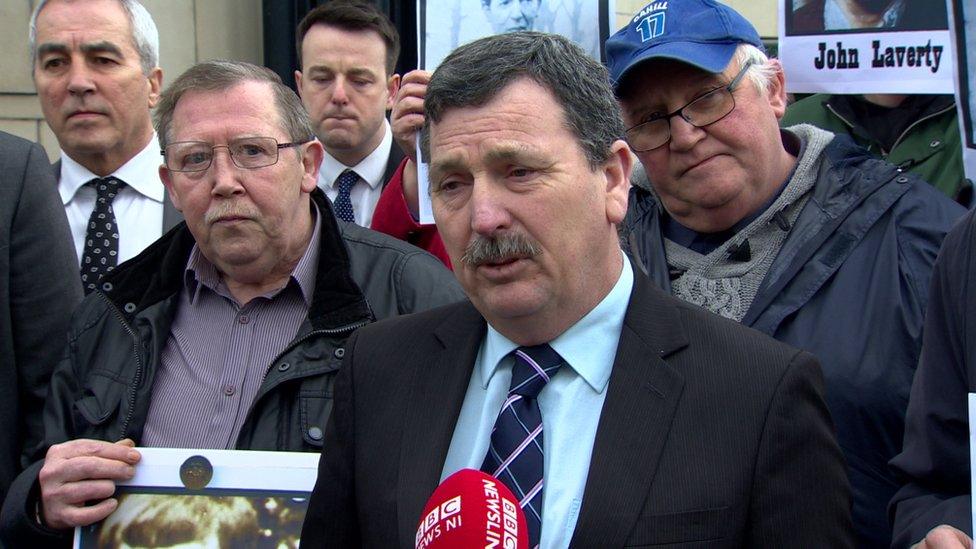
The claim about the PSNI was made on the first day of a two-week review into some of the Troubles' most controversial killings
The killings of 10 unarmed Catholic civilians by the army in Ballymurphy in August 1971 were also discussed on Monday.
It was revealed that the Ministry of Defence has told lawyers representing the families of those who were killed that it cannot identify the soldiers who were on duty in Ballymurphy at the time of the shootings.
Circumstances
The court was told that so far, the Army has only managed to trace one soldier.
Lord Justice Weir stressed the importance of the army witnesses being found.

The review was announced by the Lord Chief Justice Sir Declan Morgan in October, a month before he was appointed president of the Coroners' Courts
"At the end of the day, we want to hear about the circumstances in which these people were shot, and those best placed to do that are those who shot them," he said.
The judge said it was in everyone's interests that the soldiers who were there and fired shots came forward and explained why they did so.
Lord Justice Weir has been asked to report on the state of readiness of each of the 56 legacy cases, and to identify which, if any, can proceed to inquest hearings.
It will then be up to the Lord Chief Justice, Sir Declan Morgan, to decide what happens next.
Likening the legacy inquests to spinning plates, the judge said "there simply aren't enough resources to spin all of the plates all of the time".
He said he hopes the two week review will lead to an agreement about "which plates need to spin more urgently".
- Published18 January 2016
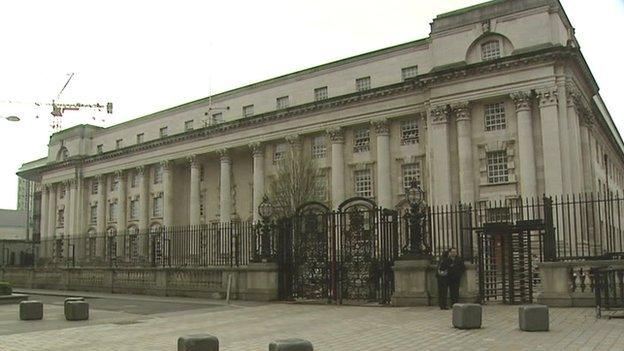
- Published22 October 2015
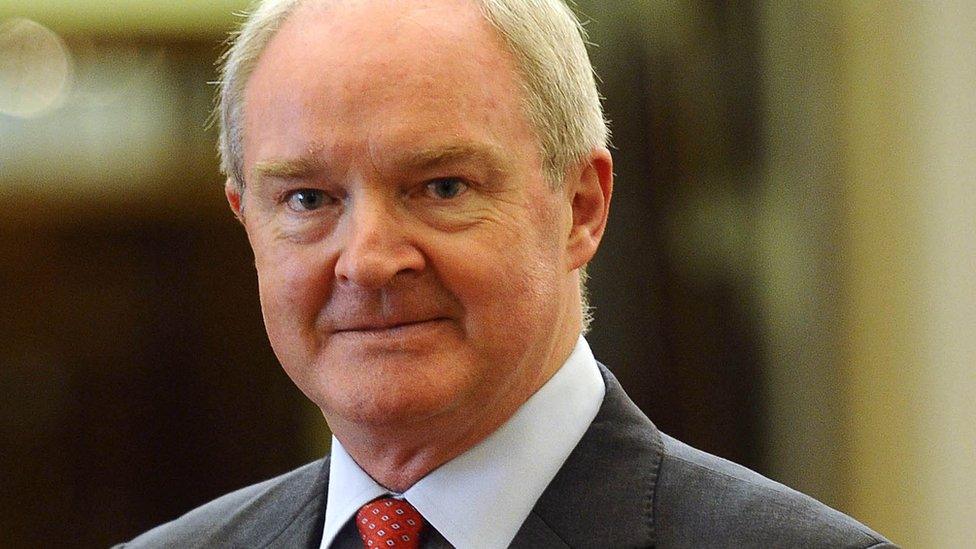
- Published7 September 2015
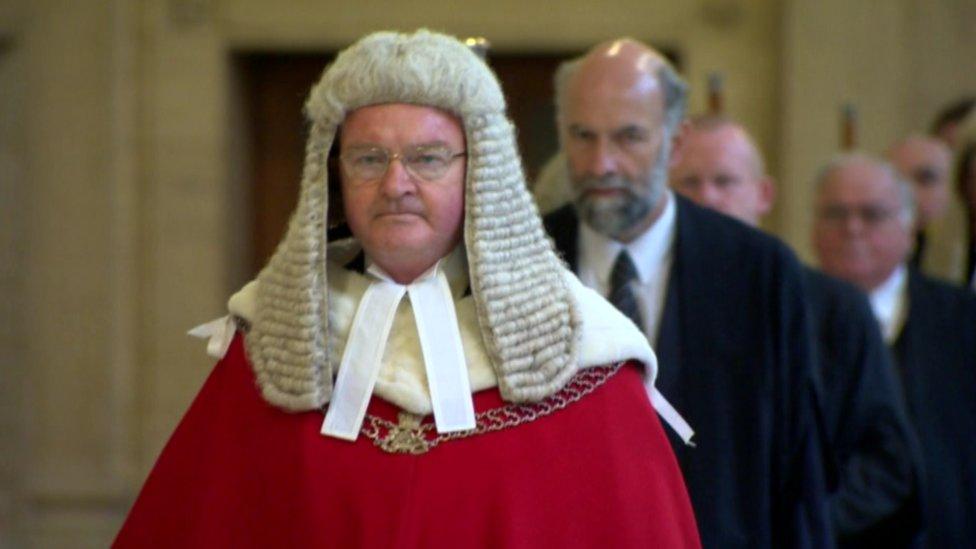
- Published17 November 2014
